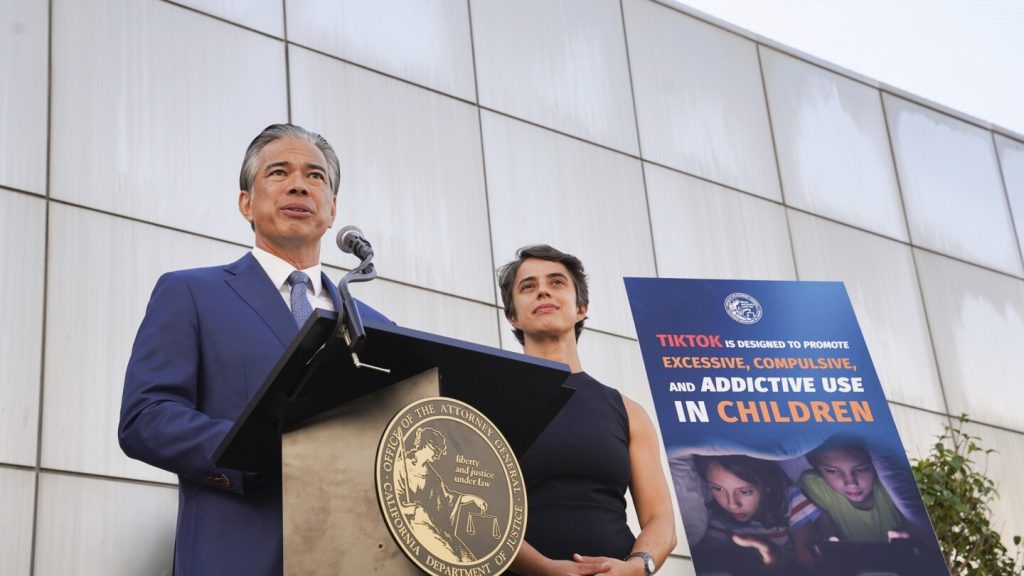Several states and the District of Columbia have filed lawsuits against TikTok, alleging that the popular video-sharing platform is designed to be addictive to children and harms their mental health. The lawsuits are a result of a national investigation launched by a coalition of attorneys general in March 2022. The complaints focus on TikTok’s algorithm, which tailors content to users’ interests and includes features that the lawsuits claim are addictive, such as endless scrolling and push notifications with built-in buzzes.
California Attorney General Rob Bonta stated that TikTok has prioritized profit over the well-being of children, leading to the lawsuits being filed. The lawsuits against TikTok come after similar legal challenges against Instagram parent Meta Platforms Inc., which were filed by states for allegedly contributing to the youth mental health crisis through addictive platform features. District of Columbia Attorney General Brian Schwalb highlighted the negative impact on users’ mental health that results from TikTok’s algorithms that aim to keep users engaged for long periods.
TikTok faces potential challenges in the U.S. due to a federal law that could result in the platform being banned by mid-January if its parent company, ByteDance, does not sell the platform. TikTok and ByteDance are challenging the law in court, with the District of Columbia alleging that TikTok’s algorithm is intentionally designed to be addictive and cause psychological and physiological harm to users. The company has responded by stating that it has been working with attorneys general for two years to address concerns and disagrees with the claims made in the lawsuits.
According to the complaints, TikTok allows children to easily bypass age restrictions, enabling them to access content meant for adults. The District of Columbia alleges that TikTok operates as an unlicensed virtual economy by allowing users to purchase virtual currency within the platform and send gifts to streamers, with TikTok taking a commission from these financial transactions. The lawsuits seek to stop TikTok from using these features, impose financial penalties, and collect damages for users who have been harmed by the platform.
The lawsuits also address concerns about teenagers being exploited for sexually explicit content through TikTok’s live streaming feature, which the attorneys general say operates like a virtual strip club without age restrictions. The lawsuits aim to prevent TikTok from profiting from exploitation and hold the company accountable for alleged illegal practices. The use of social media among teens is widespread, with almost all teenagers in the U.S. reporting using social media platforms. Studies have linked frequent social media use among high school students to persistent feelings of sadness or hopelessness.
In addition to the lawsuits filed by several states, a group of 22 other states has filed a brief urging a Tennessee court to compel TikTok to produce documents related to a multistate investigation. Texas Attorney General Ken Paxton has also sued TikTok for allegedly sharing and selling minors’ personal information in violation of state law. The company is facing multiple legal challenges relating to data privacy and the impact on children’s mental health. TikTok disputes the allegations and is actively fighting against the lawsuits filed by various states and the Department of Justice.


